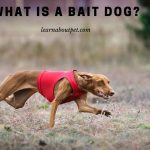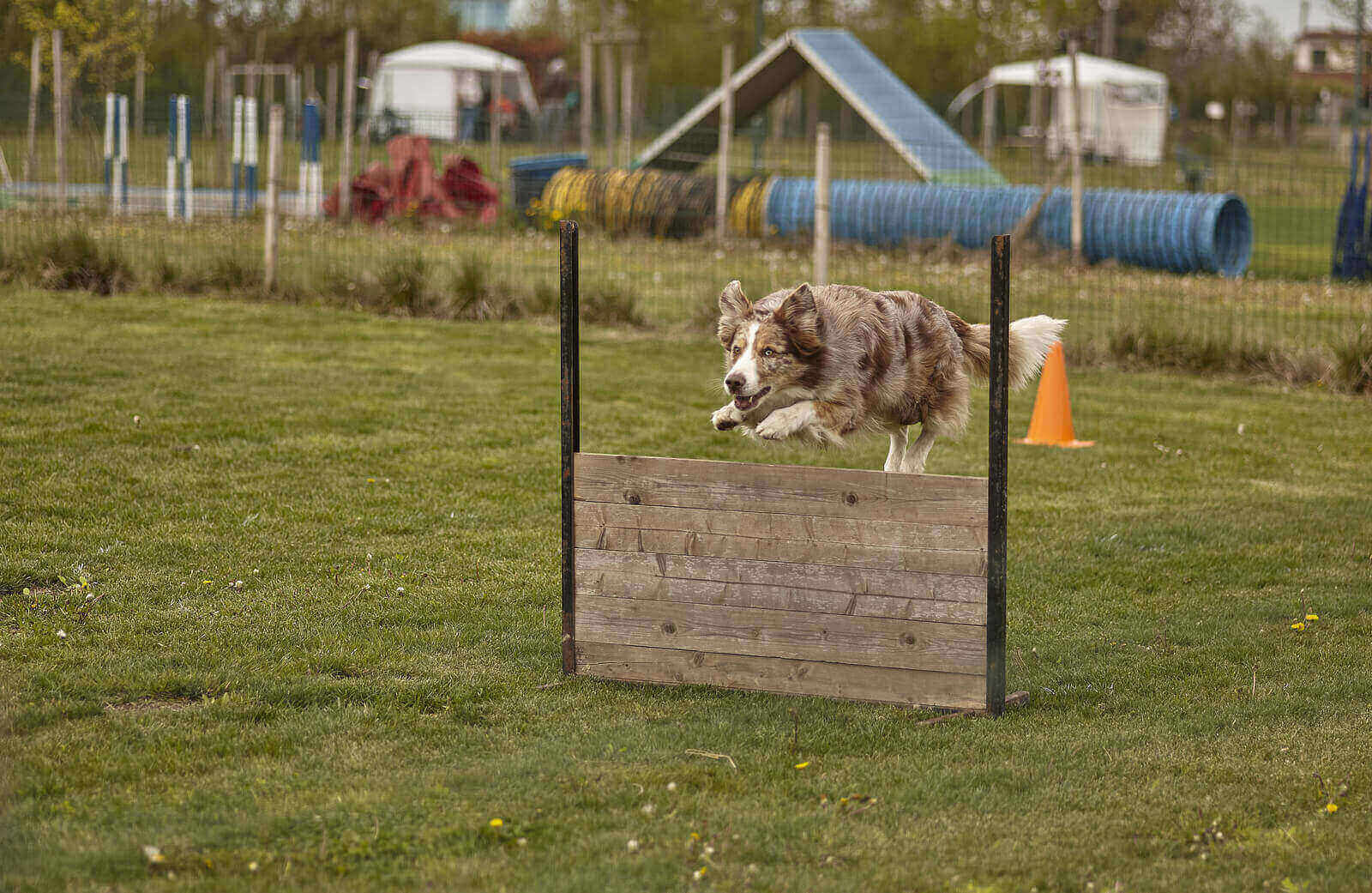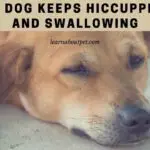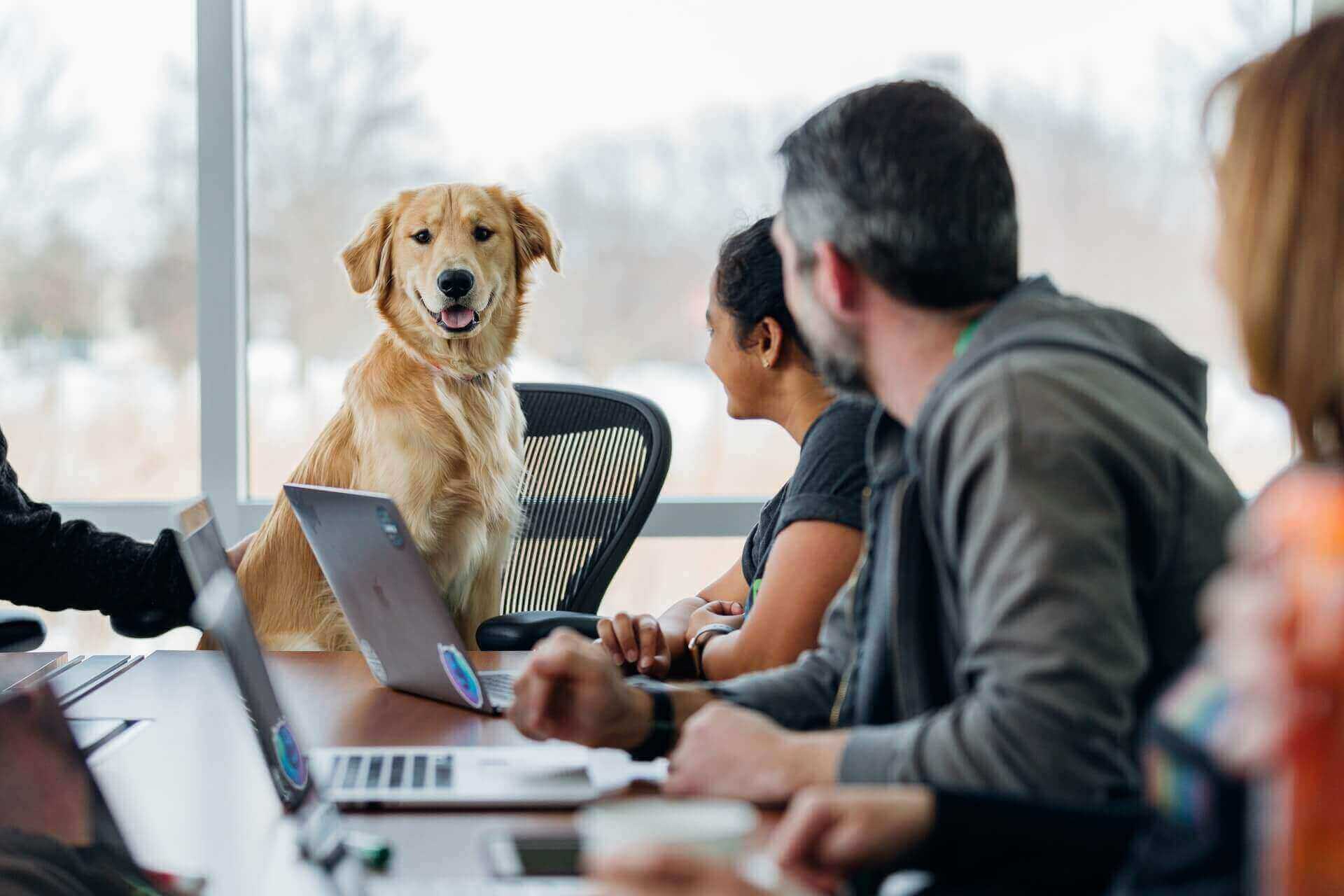If you have a roach problem in some parts of your house, you will want to put in roach bait so that a group of roaches can be removed. Putting some roach bait in the corner of the house is certainly one way to reduce roaches, but roach bait will also attract your dog because of its smell and curiosity. The dog wanted it because he was thirsty and hungry.
What if the dog ate combat roach bait? Whatever your dog is trying to eat and the item is not designed for their stomach, there will be a mild stomach irritation effect depending on the content in it. But don’t worry too much because most of the roach traps today have a high margin of safety and is safe for your dog as long as they only take a small bite or lick the bait, but not eat too much of the bait.
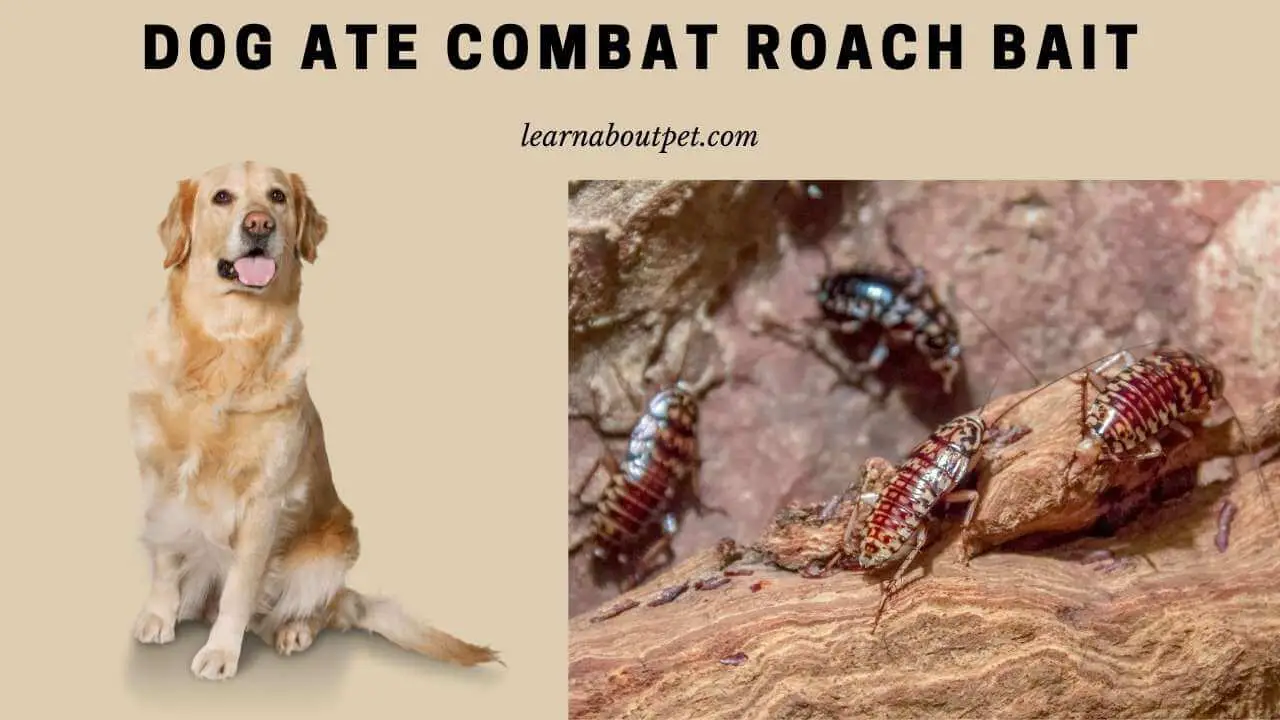
Even so, you have to know what to do when placing combat roach bait around your house so that your dog doesn’t get out of control and licks the bait. Let’s find out in this article.
What Is A Roach Killing Bait?
A product that has proven to be effective in killing Roaches. This product has an active ingredient that kills Roaches fast. The fast action of even big roaches. Because you have to put it in several corners of the house where roaches are likely to appear, many ask, ‘do roach bait traps poisonous to dogs?’
If the place is not too hidden, your pet can easily find it and be curious about the placed items and try to eat them.
Dog ate combat roach bait can already be considered a problem that many pet owners often encounter because of high dog curiosity, and some roach baits have a taste and shape that makes roach or pet want to approach them.
Roach killing bait should also be placed far out of reach of babies or small children because they still don’t know that it is a special bait that can kill the roach.
Where Do You Put Combat Roach Bait?
Some people keep a box outside, but I prefer to set up another trap. For example, a wheel trap with roach food in. Set the trap near your main door, but bait it with another food mixed with combat roach bait.
Put it in a slightly hidden place such as behind the refrigerator, the corner of the kitchen, under the counter with cracks, near the sink, and nearby where you put your appliances.
If you just put a good roach in the corner of the room, your dog eats roach trap because it arouses their taste buds because they think it’s food for them.
Give them the command to stay away from any combat roach bait you put because if the dog eats too much roach bait, there is a chance that they will experience stomach pain due to the bait’s content.
What Is In A Combat Roach Bait?
Combat roach bait has one of two poisons depending on the specific product you choose. The poison is between Hydramethylnon 2% or Fipronil 0.05%. The rest are ingredients such as sugars and representatives, which are non-toxic for pets.
Both Hydramethylnon and Fipronil are also safe to use around your dog. These two poisons have wide margins of safety. Even so, you have to keep an eye on your dog so he doesn’t eat too much bait, so he doesn’t get poisoned if a dog ate combat roach bait in large quantities.
Are Combat Roach Traps Toxic To Dogs?
Because the poisons used by combat roach bait are still relatively safe to use around your dog, or if your dog accidentally bites or licks it, combat roach bait is not toxic to dogs.
The problem is if the bait you put is still in the plastic and your dog swallows it with the plastic. This can cause stomach blockage, choking, and some fatal conditions if not treated immediately.
There is only a small chance that your dog will get poisoned when a dog ate a roach trap. It’s only when your dog eats up the bait that you put in large quantities without residue.
If you just put a little combat roach bait in every place you want, that amount is still safe for your dog to eat. Keep your dog away from roach bait even if it’s safe for them to eat. Do not let your dog ate combat roach bait for their safety.
Is Combat Roach Bait Poisonous To Dogs?
Although it will look strange if you pay attention, dogs like to eat cockroaches or ant baits. Most baits contain sugar to attract cockroaches, which can attract dogs as well.
It doesn’t matter if your dog eats a small bite of the combat roach bait, or if he eats a little more, your dog will get a stomach upset, and that’s obvious.
Many combat roach baits are safe for your pets, but that doesn’t mean if your dog ate combat roach bait is not a problem. Keep an eye on where you put the bait, and keep it out of reach of pets.
The poison in combat roach bait only has active ingredients such as Fipronil 0.05% or Hydramethylnon 2%.
What happens if a dog eats roach poison? It doesn’t matter if the dog is just licking on it or eating a small bite. The possibility that occurs is a stomach upset, and no severe events can occur.
Symptoms of poisoning would occur, such as vomiting, lethargy, and diarrhea, if the dog ate roach sprayed with raid. Dogs whose skin gets contacted with raid can also be irritated.
Is Roach Poison Toxic To Dogs?
Roach poison is not nearly as toxic to dogs, but a roach that eats poison is far more dangerous than the bait. Dog ate combat roach bait is not a serious problem if only eaten in very small portions or only licked a few parts.
Roach poison is not nearly as toxic to dogs, but a roach that eats poison is far more dangerous than the bait. There is no serious risk if the dog eats roach poison. Only if the dog eats the whole roach trap will there be problems such as vomiting or diarrhea.
My dog chewed on a roach trap, and nothing happened because only a small bite was eaten. Roach bait does contain sugar which makes dogs like to eat it. But it is not recommended for dogs to eat large portions because it is not designed as normal food for dogs.
Combat Roach Bait Ingredients
To ensure that the dog ate cockroach bait will not be severe, you must know the ingredients of the combat roach bait. The table below is some of the ingredients of the combat roach bait.
| Ingredients | Concentration |
| Vegetable oil | 10-30% |
| Sucrose | 10-30% |
| Starch | 1-5% |
| Emulsifier | 1-5% |
| Fipronil | 0.05% |
| Hydramethylnon | 2% |
| Water | – |
| Polyethylene glycols | – |
| Thickening agents | – |
It can be concluded that 98% of roach bait is not toxic to dogs, but still, 0-2% can make your dog’s stomach upset if eaten whole.
Do not let your dog ate combat roach bait, and place the bait in a place that your dog will not reach, such as behind the refrigerator, kitchen corner, behind the door, or a narrow place that has access for roaches to pass.
What Happens If A Dog Eats Cockroach Poison?
If your dog ate combat roach bait containers or ate dead roaches that died from combat roach bait, the chances of poisoning are much higher than combat roach bait eaten directly.
Immediately wash the place where you put the combat roach bait as clean as possible because the poison can be left in the containers if you accidentally put dog food in the same place.
Read the combat roach bait pet safety before you use it, immediately remove the plastic from the combat roach bait, and wash all the places near you. Put the roach bait so that your dog is safe from poisoning.
Dog eats cockroach poison can only be in tiny amounts, and still, forbid your dog to eat roach bait to prevent stomach upset.
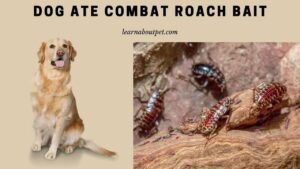
What Happens If A Dog Eats Combat Roach Bait?
Gastrointestinal upset is most common when the dog ate combat roach bait in a large amount. The severe conditions if the dog eats the metal bait casing or plastic from the roach bait packaging. Plastic or metal casing can cause impaction or choking that can lead to death.
If you see a combat roach bait dog chewed, immediately remove the roach bait from your dog and wash their mouth. Watch your dog’s behavior for a moment. If they act normally, then there’s nothing to worry about.
The dog licked combat roach bait is also not a big problem because dogs are curious about the roach bait that looks like a treat for them. Keep an eye on your dog’s behavior. If there are signs of poisoning, take him to the vet immediately.
Will Combat Roach Bait Hurt My Dog?
This product is not a danger to your dog if they do not eat it too much. There needs to be supervision if you put roach bait around the corner of the house because dogs will also be curious about it.
Combat roach bait and dogs are a concern for pet owners because they want their home to be free from the roach nest immediately but are also confused about placing the right place for their combat roach bait for fear the dogs will eat it up.
Dog ate combat roach bait is not as bad as indoxacarb dogs if eaten in large quantities, which can cause salivation, weakness, inability to stand, and depression.
My Dog Ate Roach Poison What Do I Do?
When your dog ingested roach poison in large or small quantities, immediately check their behavior and take them to the vet if necessary. Do not induce vomiting before the vet performs a medical examination to ensure that the amount of combat roach bait eaten is harmful or not.
Also, make sure that no plastic or metal packaging is eaten so that your dog is safe from choking or impaction.
My dog chewed up a roach bait, and immediately I removed the roach bait and cleaned my dog’s mouth of the remaining bait. I also let the dogs sit still for an hour or two to see their reaction after chewing combat roach bait.
If any pet owners have a problem and ask you, “help! dog ate combat roach bait strip,” tell them not to panic, and contact a vet immediately to see what the dog’s reaction is. It won’t be a big problem if the dog eats only a small portion of the bait.
What To Do If My Dog Ate Combat Roach Bait?
Do not give human medicine or perform actions such as induce vomiting so that your dog is not stressed and does not make the situation worse if poisoning occurs. Let the dog vomit or experience lethargy and immediately take him to the vet if some poisoning symptoms have started.
Dog eats roach poison will have a big effect if eaten in large quantities at once or in a whole container when you are not watching it. My dog ate a roach that has been hit by a combat roach bait and has diarrhea because a poisoned and dead roach will be much more poisonous than the bait.
You just should not be reckless and take personal decisions in knowing your dog is poisoned because if you handle it wrong, your dog’s condition can get worse.
Combat Roach Killing Bait Dog Ate Fipronil – Will He Be Okay?
Roach bait containing fipronil is harmless to dogs as it is only about 0.05% of the total ingredient. Dog ate fipronil in the combat roach bait is not a big deal, but ensure your dog does not ingest any of the containers because it includes non-edible items, which can be a major problem.
Like the dog ate termite bait, digestive disturbances may occur if you eat too much, but the percentage for nothing to happen is also much higher.
My Dog Ate Combat Max Roach Killing Gel
If your dog is seen licking combat max roach killing gel, immediately remove the gel and give your dog a drink. Call the vet and ask what solutions can be done so that you can be advised to give medicine to your dog if needed.
Roach bait dog ingestion will only be a problem if your dog eats the container because it is a non-edible item that can cause stomach blockage, and when you want to induce vomiting, it is also dangerous for your dog.
Dog ate combat roach bait is not a big problem if eaten only in small quantities because it is only poisonous if eaten by roaches because their bodies are much smaller. Keep a dead roach near the bait, as it will be more dangerous if the dog eats a dead roach.
Can Combat Roach Bait Kill A Dog?
Combat roach bait is nearly impossible to kill your dogs even if eaten in large quantities. The combat roach bait manufacturer also explains that a 10-pound dog will experience poisoning by eating up to 50 bait trays. It is a very rare occurrence if your dog eats 50 bait in a short time.
Combat roach killer dog ate is only dangerous if containers such as plastic or metal are eaten because it can become a choking hazard and intestinal blockage.
Still, if you see a dog chewed up roach bait, immediately tell your dog to stop and give proper food to your dog so that their digestive system immediately processes the food they eat and passes them through the stool.
FAQ
Is Combat Roach Killing Bait Safe For Pets?
Combat roach bait is safe for your dog because 98% of the ingredients of the bait are safe for dogs, and the toxic part is only 2%. Need a very large amount if the dog ate roach bait, and they can be poisoned. My cat ate combat roach bait, and he is fine without any stomach problems.
What If A Dog Eats Cockroach Poison?
Don’t be panicked if your dog eats cockroach poison because it will not cause poisoning from 98% of non-toxic ingredients for dogs. Dogs chewed on roach traps should still be stopped to not get stomach upset if they eat too much.
What If My Dog Ate Combat Roach Bait?
If your dog eats the bait and it appears that the plastic or metal casing has been eaten, immediately contact the vet because it can be fatal because these are non-edible items. The main problem is not in the roach bait but in the container because it can cause stomach blockage or a choking hazard.
Final Verdict – Dog Ate Combat Roach Bait
Keeping your home clean of cockroaches and their nests is mandatory. If you want to put combat roach bait, make sure you put it in a place that is not reachable by dogs, although it is safe if accidentally eaten by your pets.
Research tells us Combat roach bait has 98% non-toxic ingredients for dogs and only 2% active ingredients that can kill a roach but will not cause any side effects to dogs.

The only thing that must be considered is the container because plastic or metal casings can be dangerous for dogs if eaten because they can become blockage, choking, or other severe conditions.
Take it to the vet immediately if you see a dog eating roach bait at once with the container.
Other Dog Food or Nutrition related questions answered in detail
Can Dogs eat Vanilla Ice Cream?
Can Puppies eat Peanut Butter?
Can Dogs eat Chicken Noodle Soup?

Welcome to Learn About Pet. My name is Rajkumar Ravichandran and I love all pets, travel, and amazing food. I write about my passion and personal experience caring for multiple pets in this blog! ❤️
Post Disclaimer
DISCLAIMER: THIS BLOG OR WEBSITE, "Learn About Pet", DOES NOT PROVIDE YOU WITH MEDICAL ADVICE AND IS NOT A SUBSTITUTE FOR MEDICAL ADVICE. ALWAYS GET IN TOUCH WITH YOUR PERSONAL VETERINARIAN AND USE INFORMATION HERE AS GENERAL ADVICE.
The information, including but not limited to, text, graphics, images and other material contained on this website are for informational purposes only. No material on this site is intended to be a substitute for professional veterinary advice, food recommendation, diagnosis, or treatment. Always seek the advice of your veterinarian or other qualified health care provider with any questions you may have regarding a medical condition or for pet food related questions.
